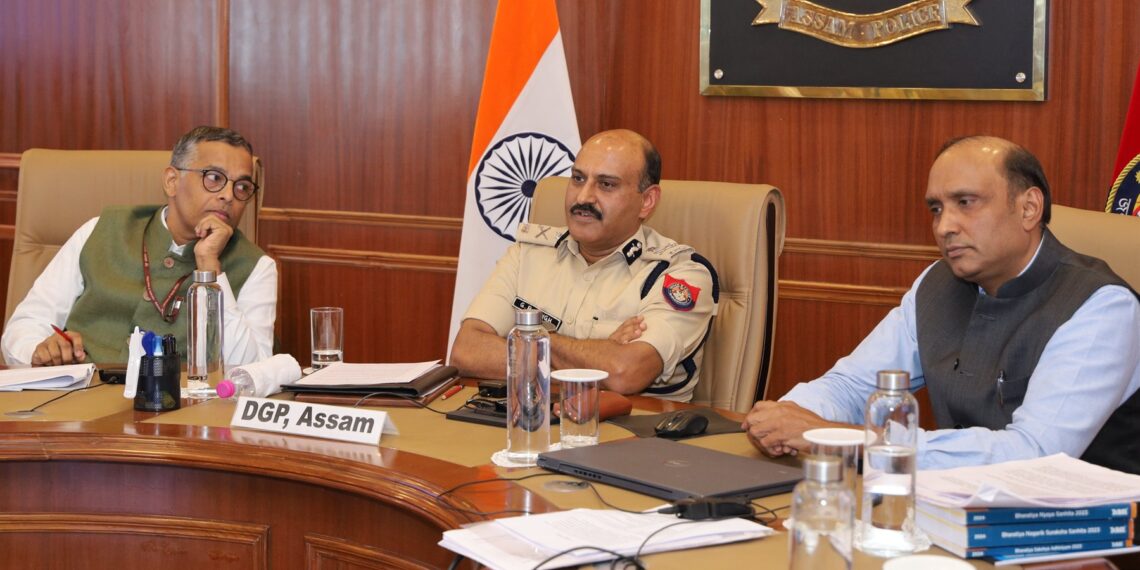GUWAHATI: Criminal forensic science will be Assam Police’s primary focus as it prepares to implement new criminal laws starting July 1.
Described the transition as a “momentous occasion”, Director General of Police (DGP), GP Singh said that around 200 officers have already undergone specialised training in criminal forensic science at the National Forensic Science University (NFSU) in Gujarat.
“And over 500 more will be trained over a period of a few months. We’ve placed a strong emphasis on forensics, which is crucial for the implementation of the new laws,” Singh stated, during a media briefing on the three new criminal laws held in Guwahati on Tuesday.
Highlighting the modernisation of the criminal laws, Singh highlighted that these updates are in line with contemporary needs and requirements.
“We are keeping a very close watch from police headquarters so that the law implementation is as seamless as possible,” he assured.
Adding to the discourse, Munna Prasad Gupta, Additional Director General of Police (ADGP), CID Assam, provided an in-depth analysis of the reforms.
He announced that five forensic laboratories will be established in Silchar, Bongaigaon, Jorhat, Dibrugarh, and Tezpur.
Additionally, mobile forensic vans will be deployed to every district to enhance on-site forensic capabilities.
The foundation for these advancements was laid last year by Union Home Minister Amit Shah with the establishment of the NFSU campus in Guwahati, a development Gupta termed as a significant boost to forensic science in Assam.
Among the new procedures, mandatory audio-videography of search and seizure operations will now be required.
These recordings must be uploaded to the E-Sakshya application and integrated with DigiLocker, ensuring they are treated as official documents.
Gupta explained that this measure aims to mitigate the risk of crime scene manipulation during search and seizure operations.
India is poised to replace colonial-era legislation with three new criminal laws: the Bharatiya Nagarik Suraksha Sanhita, Bharatiya Nyaya Sanhita, and Bharatiya Sakshya Adhiniyam.
These will supplant the Indian Penal Code 1860, the Criminal Procedure Code 1973, and the Indian Evidence Act 1872, respectively.
The event also featured Satish Nambudiripad, Director General of the Northeast Zone, who delivered the welcome address, discussing the evolution of the criminal justice system to become more accessible to the public.















